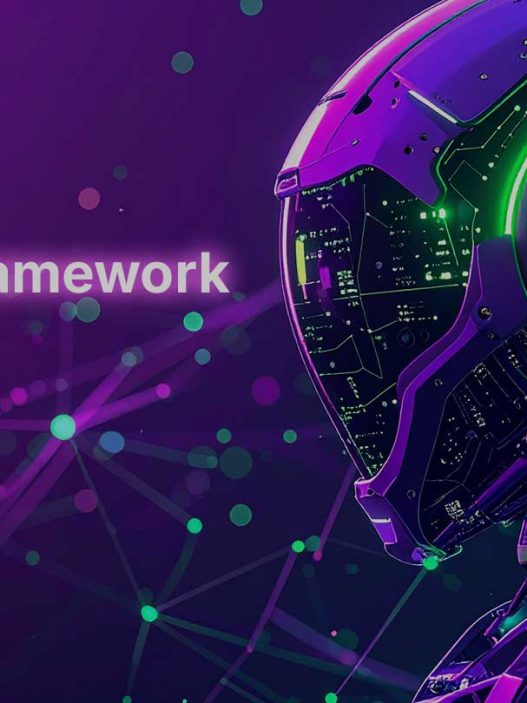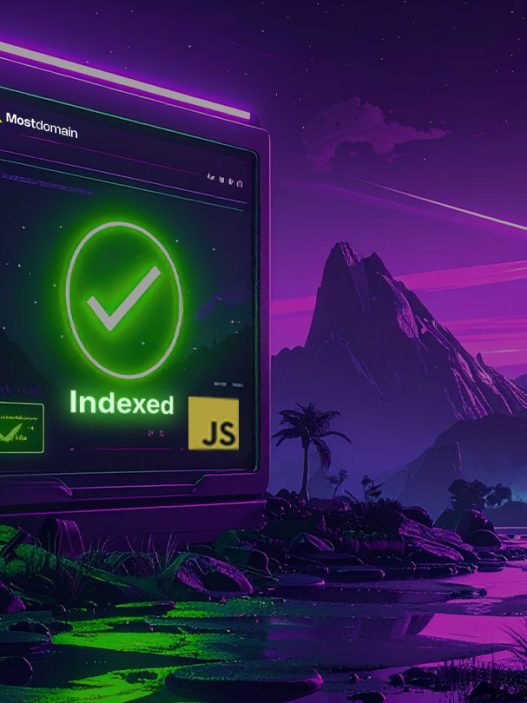When I first encountered PHP fifteen years ago, I had no idea this server-side scripting language would become the backbone of over 79% of all websites worldwide. Today, as someone who’s built countless web applications and trained hundreds of developers, I’m excited to share everything you need to know about PHP programming in this comprehensive guide.
Whether you’re a complete beginner wondering “what is PHP?” or a developer looking to expand your skillset, this article will take you from zero to confident PHP programmer. Let’s dive into the world of PHP development and discover why this programming language continues to dominate web development in 2025.
What Exactly Is PHP and Why Should You Care?
PHP (originally Personal Home Page, now PHP: Hypertext Preprocessor) is an open-source, server-side scripting language designed specifically for web development. Unlike HTML and CSS that run in your browser, PHP executes on the web server, generating dynamic content that gets sent to users as regular HTML.
Think of PHP as the engine behind the scenes that powers your favorite websites. When you log into Facebook, post on WordPress, or shop on an e-commerce site, there’s a high chance PHP programming is making it all happen. The language seamlessly integrates with HTML, allowing developers to create interactive, database-driven websites with ease.
What makes PHP special is its simplicity and flexibility. I’ve seen complete beginners write their first functional web application within days, something that would take weeks with more complex languages.
Key Statistics About PHP Usage in 2025
| Metric | Value | Source |
| Websites using PHP | 79.2% | W3Techs Survey 2025 |
| PHP 8+ adoption rate | 71.4% | PHP Usage Statistics |
| Average PHP developer salary | $86,000/year | Indeed.com |
| GitHub PHP repositories | 1.2+ million | GitHub Statistics |
How Does PHP Actually Work Behind the Scenes?
Understanding how PHP programming works is crucial for any aspiring web developer. Let me walk you through the process that happens every time someone visits a PHP-powered website.
When a user requests a webpage containing PHP code, the web server locates the .php file and passes it to the PHP interpreter (typically the Zend Engine). The interpreter reads the PHP code, executes it line by line, and generates HTML output. This HTML is then sent back to the user’s browser, which displays the final webpage.
Important Note: The user never sees the actual PHP code – only the resulting HTML. This server-side execution makes PHP secure and prevents users from accessing your source code.
The beauty of this process is that it allows for dynamic content generation. Instead of creating hundreds of static HTML pages, you can use PHP to pull data from databases, process user input, and create personalized experiences for each visitor.
Why Is PHP Still Dominating Web Development in 2025?
After decades in the industry, I’m often asked whether PHP programming is still relevant. The answer is a resounding yes, and here’s why PHP continues to thrive:
- Ease of Learning: PHP’s syntax is beginner-friendly and forgiving
- Cross-Platform Compatibility: Runs on Windows, Linux, macOS, and Unix
- Open Source: Completely free with no licensing costs
- Massive Community: Millions of developers worldwide provide support
- Rich Ecosystem: Thousands of frameworks, libraries, and tools available
- Database Integration: Seamless connection with MySQL, PostgreSQL, and more
- Hosting Support: Supported by virtually every web hosting provider
- Continuous Evolution: Regular updates with modern programming features
The statistics speak for themselves. Major platforms like WordPress, Facebook, Wikipedia, and Slack all rely on PHP. This isn’t about legacy code – these companies actively choose PHP for new projects because it delivers results.
What Are the Core Features That Make PHP Powerful?
Let me share the key features that have made PHP programming my go-to choice for web development projects over the years.
Dynamic Typing and Flexibility
PHP uses dynamic typing, meaning you don’t need to declare variable types explicitly. The interpreter figures it out automatically, making development faster and more intuitive for beginners.
<?php
$name = "John Doe"; // String
$age = 25; // Integer
$price = 99.99; // Float
$isActive = true; // Boolean
?>Built-in Web Development Features
Unlike general-purpose languages, PHP was designed specifically for web development. It includes built-in functions for handling forms, cookies, sessions, file uploads, and email sending – tasks that require external libraries in other languages.
How Can You Get Started with PHP Programming Today?
Starting your PHP development journey is easier than you might think. I’ve guided countless beginners through this process, and here’s the most effective approach I’ve discovered.
1. Set Up Your Development Environment
| Component | Recommended Option | Alternative |
| Local Server | XAMPP (Cross-platform) | WAMP (Windows), MAMP (Mac) |
| Code Editor | Visual Studio Code | PhpStorm, Sublime Text |
| Browser | Chrome/Firefox | Any modern browser |
2. Write Your First PHP Script
Create a file called hello.php and add this code:
<!DOCTYPE html>
<html>
<head>
<title>My First PHP Script</title>
</head>
<body>
<h1><?php echo "Hello, World!"; ?></h1>
<p>Today is <?php echo date('Y-m-d'); ?></p>
</body>
</html>When you run this file through a web server, PHP will execute the code between <?php and ?> tags, replacing them with the actual output.
Which Companies Are Actually Using PHP in Production?
One question I frequently get is whether major companies still use PHP programming for serious applications. The answer might surprise you – some of the world’s largest tech companies rely heavily on PHP.
Major PHP-Powered Platforms:
- Facebook: Uses PHP with their custom HipHop compiler
- Wikipedia: Runs on MediaWiki (PHP-based)
- WordPress: Powers 43% of all websites globally
- Slack: Backend API built with PHP
- Etsy: E-commerce platform using PHP frameworks
- Mailchimp: Email marketing service built on PHP
- Tumblr: Social media platform running PHP
These companies didn’t choose PHP by accident. They selected it because it scales well, performs efficiently, and allows rapid development cycles.
What Are the Most Popular PHP Frameworks Worth Learning?
In my experience, PHP frameworks can dramatically accelerate your development process. Here are the frameworks I recommend based on different use cases:
Laravel: The Developer’s Favorite
Laravel has become the most popular PHP framework, and for good reason. Its elegant syntax, powerful features, and excellent documentation make it ideal for both beginners and experienced developers.
Key Laravel Features:
- Eloquent ORM for database interactions
- Built-in authentication and authorization
- Artisan command-line tool
- Blade templating engine
- Queue management system
Other Notable Frameworks
| Framework | Best For | Learning Curve |
| Symfony | Enterprise applications | Steep |
| CodeIgniter | Rapid prototyping | Easy |
| CakePHP | Convention over configuration | Moderate |
| Zend/Laminas | Professional development | Steep |
| Phalcon | High-performance applications | Moderate |
How Does PHP Compare to Other Programming Languages?
As someone who’s worked with multiple programming languages, I’m often asked how PHP programming stacks up against alternatives like Python, JavaScript, or Ruby.
PHP vs Python
PHP Advantages:
- Specifically designed for web development
- Faster for web applications
- Easier deployment on shared hosting
- Better integration with HTML
Python Advantages:
- More versatile (AI, data science, automation)
- Cleaner syntax
- Stronger in scientific computing
PHP vs JavaScript (Node.js)
PHP Advantages:
- More mature ecosystem for web development
- Easier to learn for beginners
- Better separation of concerns
- Extensive hosting support
JavaScript Advantages:
- Same language for frontend and backend
- Better for real-time applications
- More modern async programming model
What Career Opportunities Exist for PHP Developers?
The demand for skilled PHP developers remains strong across multiple industries. Based on my networking with hiring managers and recruitment agencies, here’s what the job market looks like:
Average Salary Ranges (2025 Data)
| Experience Level | United States | United Kingdom | Canada | Australia |
| Junior (0-2 years) | $55,000-$70,000 | £25,000-£35,000 | C$50,000-$65,000 | A$60,000-$75,000 |
| Mid-level (3-5 years) | $75,000-$95,000 | £40,000-£55,000 | C$70,000-$85,000 | A$80,000-$100,000 |
| Senior (5+ years) | $95,000-$130,000 | £55,000-£75,000 | C$85,000-$110,000 | A$100,000-$130,000 |
Common PHP Developer Roles
- Full-Stack Web Developer
- Backend Developer
- WordPress Developer
- E-commerce Developer
- API Developer
- DevOps Engineer (PHP focus)
What Are the Best Practices for Writing Clean PHP Code?
After years of reviewing code and mentoring developers, I’ve identified the practices that separate good PHP programming from great PHP programming.
Code Organization and Structure
Always organize your code into logical files and folders. Use namespaces to avoid naming conflicts, and follow PSR (PHP Standards Recommendations) for consistent coding style.
<?php
namespace App\Models;
class User
{
private $database;
public function __construct(Database $database)
{
$this->database = $database;
}
public function findById(int $id): ?User
{
return $this->database->query('SELECT * FROM users WHERE id = ?', [$id]);
}
}
?>Security Best Practices
- Always sanitize user input
- Use prepared statements for database queries
- Implement proper authentication and authorization
- Keep your PHP version updated
- Use HTTPS for data transmission
- Never trust user input directly
- Don’t expose sensitive information in error messages
How Is PHP Evolving for Modern Web Development?
PHP programming has undergone significant improvements in recent years. PHP 8.x introduced features that make the language more modern and competitive with newer alternatives.
Key Modern PHP Features
- Just-In-Time (JIT) Compilation: Improved performance for CPU-intensive tasks
- Union Types: Better type safety and code documentation
- Named Arguments: More readable function calls
- Match Expressions: Cleaner alternative to switch statements
- Attributes: Modern metadata system replacing annotations
Pro Tip: Always use the latest stable PHP version. PHP 8.1+ offers significant performance improvements over older versions, with some applications seeing 20-30% speed increases.
What Resources Should You Use to Master PHP?
Learning PHP development effectively requires the right combination of resources. Here’s my curated list based on what has worked best for my students:
Free Learning Resources
- Official PHP Documentation (php.net) – Comprehensive and always up-to-date
- W3Schools PHP Tutorial – Great for absolute beginners
- Codecademy PHP Course – Interactive learning experience
- freeCodeCamp – In-depth articles and tutorials
- PHP: The Right Way – Best practices guide
Paid Resources Worth the Investment
- Laracasts: Premium Laravel and PHP screencasts
- Udemy PHP Courses: Structured learning paths
- Pluralsight: Professional development tracks
- Books: “PHP: The Good Parts” and “Modern PHP”
Wrapping Up Your PHP Journey
My journey with PHP programming has been incredibly rewarding, and I believe yours can be too. This language has evolved from a simple scripting tool to a robust, modern programming language that powers the majority of the web.
The key to success with PHP is consistent practice and staying updated with the latest developments. Start with basic concepts, build small projects, and gradually work your way up to more complex applications. Remember, every expert was once a beginner.
Whether you’re looking to build your first website, change careers, or add another skill to your toolkit, PHP offers a clear path to web development success. The community is welcoming, the resources are abundant, and the job opportunities are plentiful.
Take that first step today. Download a local development environment, write your first “Hello, World!” script, and begin your journey into the exciting world of web development with PHP.
References
- W3Techs. (2025). “Usage Statistics of Server-side Programming Languages for Websites.”
- PHP Group. (2025). “PHP: Hypertext Preprocessor.” Official Documentation.
- Stack Overflow. (2024). “Developer Survey 2024.”
- Indeed.com. (2025). “PHP Developer Salary Guide.”
- GitHub. (2025). “The State of the Octoverse 2024.”
- Laravel. (2025). “Laravel Framework Documentation.”
- Symfony. (2025). “Symfony Framework Documentation.”
- JetBrains. (2024). “The State of Developer Ecosystem 2024.”
- BuiltWith. (2025). “PHP Usage Statistics.”
- TIOBE Index. (2025). “Programming Community Index.”





















